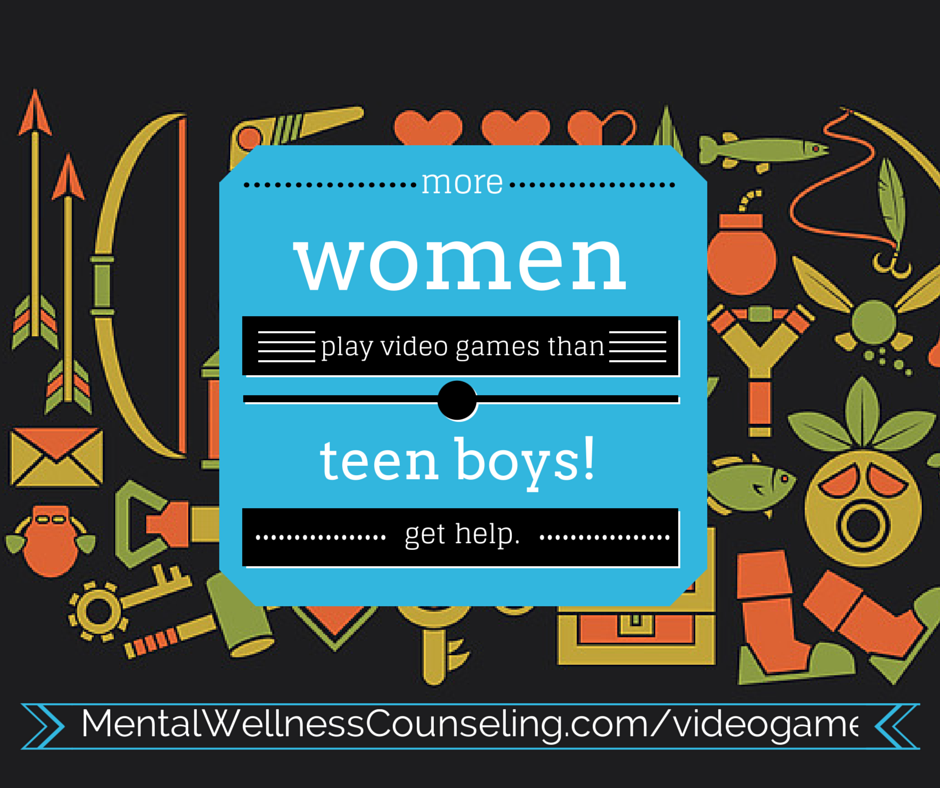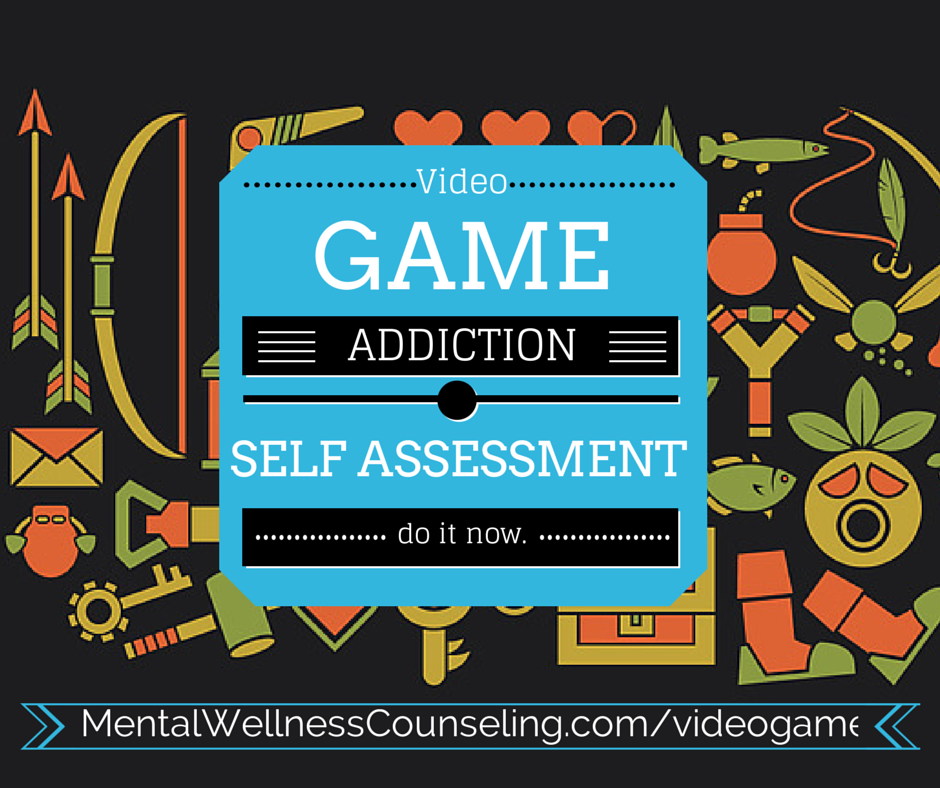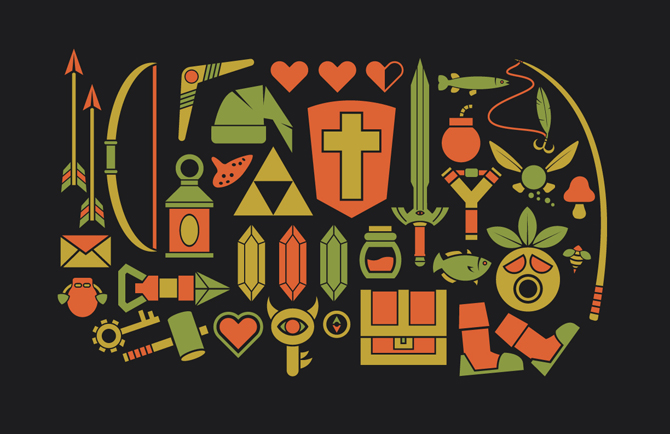We were visiting our recently married friends, I asked the wife, “What didn’t you expect in marriage?”
She said, “I thought the wow would end.”
“That’s great that it has continued,” thinking it was a weird way of saying that there was still a spark or flame in the marriage.
“No, I thought the World of Warcraft would end, he stays up all night playing that stupid game.”
Video game addiction is not just for adolescent boys. The Washington Post recently reported that there are more adult woman gamers than teen boy players in the world. “Internet Gaming Disorder” even made its way into the DSM-5, the diagnosis guidebook for psychiatrists and other helping professionals. Video game addiction has the potential to grow into one of the most challenging addictions to treat.
Video Games are Made to Addict
Video games are created in a way to engage and suck someone in. They have tapped top neuroscientists and psychological experts to create games that give quick incentives. By having a rapid reward system, players feel a sense of accomplishment and self worth.
When is it too much?
Each person’s tolerance for video games is different. The big question I ask, when treating video game addiction, is “How is it hurting your life?” As a newlywed are you staying up all night…playing video games? Is homework being turned in late? Are you still getting 7-8 hours of sleep? Is your job failing?
When it starts to hurt a major life domain (relationships, school, or work), it’s usually time to get help.
Long Term Consequences
Severe video game addiction can lead to needing rapid reward systems. The world isn’t like that, we don’t get high score points every time we drop our kids off at school on time. Also, brain development happens most in the 0-3 years and then again in the teen years. Once that time is gone, the brain develops at a much slower rate.
Video games are made to be addicting and too much can effect brain development and life domains. Maybe it is time to put some actual “WOW!” back into life and leave the World of Warcraft behind.
Video Game Addiction Assessment
This self-assessment is meant to be an awareness tool. For a full assessment, please contact a counselor with Mental Wellness Counseling. This assessment is adapted from the Game Addiction Self Assessment.
Answer “Yes” or “No” to the following:
- Have you tried but failed to control your personal gaming time?
- Have you ever sensed an exaggerated sense of well-being when playing video games?
- Do you find yourself constantly needing to play more video games?
- Do you ever neglect family or friends because of how much time you spend gaming?
- Do you find yourself feeling restless, irritable and discontented when you’re not gaming?
- Do you ever find yourself lying to family members or friends about how much time you spend playing video games?
- Do you experience school or job performance issues due to how much time you play video games (e.g. your grades go down at school, or you don’t get a good work review from your boss)?
- Do you ever feel bad, guilty or depressed about how much time you spend gaming?
- Have you changed your sleep patterns due to gaming?
- Do you get headaches, red eyes, sore fingers, or wrist pains from playing video games?
- Have you withdrawn from real-life hobbies and social interactions due to gaming?
- Do you spend more than 2 hours in a day playing video games?
- Do you frequently stay up late to play video games and as a result you are tired the next morning?
- Do you neglect your hygiene because of excessive video gaming?
- When your computer or video game machine is not working do you feel irritable or anxious if you can’t play a particular game?
- Do you become angry or defensive when someone asks you about your gaming habits?
- Within the last year have you played video games for more than 6 hours nonstop?
- Do you use gaming to escape from real life problems, anxiety or depression?
Answer Key
How many “yes” answers did you have?
Average Gamer 0-3
Your gaming has an impact on your life, seems enjoyable, but also has the potential to get out of hand if not kept in check.
At-Risk Gamer 4-6
The level of gaming that you currently experience is likely having a negative impact on several areas of your life. You may not understand how your work or job performance has the potential to suffer. Your relationships may be in rough shape. Your body may begin to experience longer term affects of gaming including frequent headaches, back issues, loss of sleep, increase in anxiety, and increase in depression. A few sessions with a professional may help you get back on track.
Extremely High Risk Gamer 7+
Based on these scores, you are fairly addicted to gaming. Working with a professional will most likely help you to create boundaries, increase positive social interaction, and stop long-term effects. It is important to get help as soon as possible from a counselor, life coach, or other professional that focuses on changing addictive habits.
Do you need help? Does someone you love need help? Contact us about getting help for video game addiction.
[CONTACT-US-FORM]


featured image by Cory Schmitz

